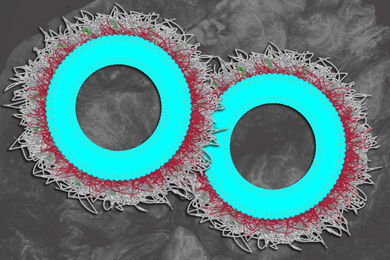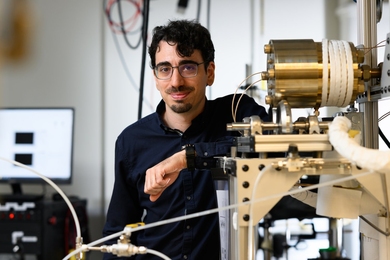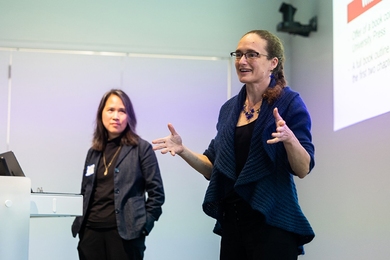The MIT Energy Initiative continues to develop and expand its eight Low-Carbon Energy Centers, which facilitate multidisciplinary collaboration among MIT researchers, industry, and government to advance research in technology areas critical to addressing climate change. Francis O’Sullivan and Christopher Knittel, co-directors of the Center for Electric Power Systems Research, collaborated on answers to three pressing questions about transforming the energy system.
Q: Why is research into electric power systems necessary to reduce carbon emissions worldwide?
A: Fueling global economic development and powering the lives of billions who lack access to modern energy sources will require a dramatic expansion of the world’s electricity system. At the same time, efforts to mitigate global climate change depend on making drastic carbon dioxide emissions cuts — moving even larger portions of the transportation, heating and cooling, and industrial sectors away from fossil fuels and toward cleaner power sources that generate electricity.
Accommodating these changes will require the electric power sector to undergo an unprecedented transformation.
The sector is already highly complex, requiring the precise integration of hardware, operations, and market and regulatory structures. Going forward, the deployment of renewable and increasingly distributed energy resources such as wind, solar, storage, and demand response will challenge the planning and reliable operation of the system. Simultaneously, the much-expanded digitalization of power systems necessary to support a much more decentralized grid will result in increasing cyber risks.
Transforming the sector will require cross-disciplinary research spanning engineering, science, economics, and policy, as well as real-world input from stakeholders in industry, government, and nongovernmental organizations. This is the work of the MIT Energy Initiative’s Low-Carbon Energy Center for Electric Power Systems Research.
Q: How is the electric power systems center addressing these research challenges?
A: The center draws upon MIT’s extensive existing research capability in a broad range of relevant fields — from power system modeling to market and regulatory design, and from cyber security to power systems technology — to advance a system-level understanding of the power sector and the transformation it is undergoing.
The center develops new methodological approaches, in-depth policy evaluations, and advanced modeling and analysis tools to represent the complex and dynamic behaviors of power systems. The goal is to make justified, insightful assessments of how such systems will evolve over time and to determine how regulatory and policy innovations can facilitate the transformation to a decarbonized power sector.
Q: Can you provide an example of the kind of research currently under way at the center?
A: The Utility of the Future report, released in December 2016, is a great example of the in-depth research going on here. Developed over several years in collaboration with the Institute for Research in Technology at Comillas Pontifical University, the report provides a toolkit for businesses, policymakers, and regulators to navigate the unfolding changes in electric power systems and develop robust, efficient alternatives.
The study paired research in quantitative economic and engineering modeling with a sophisticated understanding of the complex interactions that characterize the electric power industry. The team included MIT faculty with decades of experience in advising governments, corporations, and institutions on regulation and market design. In addition, we tapped industry stakeholders and other market participants to contribute insights from their real-world experience.
The research revealed that in order to ensure that distributed and centralized energy resources are integrated efficiently, electric power systems in the United States, Europe, and other parts of the world will need major regulatory, policy, and market overhauls.
Going forward, the center will be analyzing potential policy and regulatory changes while also tackling many of the other impacts and opportunities likely to emerge from the greater decarbonization, decentralization, and digitization of the power system. These include the challenge of understanding how new and emerging technologies can be effectively integrated into existing power structures. Since wind and solar aren’t entering the system in the same way in Massachusetts as in New Delhi, for example, we are looking at the system’s evolution within a plethora of contexts.
We are also developing a variety of technical and economic modeling tools as well as new market theories to address the system’s extraordinary complexity. In sum, we are working to devise strategies that will enable cleaner, more reliable, and more cost-effective power system solutions in the future.
This article appeared in the Autumn 2017 issue of Energy Futures, the magazine of the MIT Energy Initiative.









